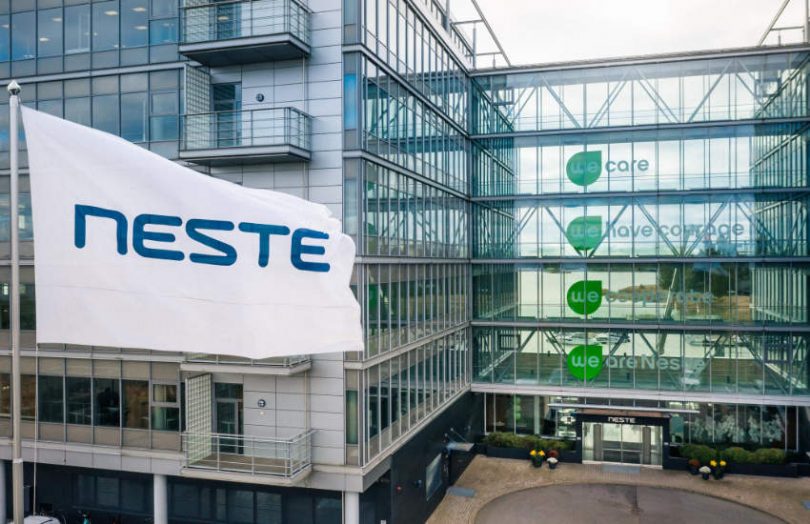Finnish oil refiner Neste (Market cap: €33bn/$35bn) has partnered with Netherlands blockchain startup Circularise to provide transparency for its renewable polymers and chemicals.
Circularise has a track record of working with big names for plastics traceability, including Porsche, Marubeni and plastics producers DOMO and Covestro. It also secured funding from the EU’s Horizon 2020 program.
The role of the circular economy for polymers and chemicals is an important one. In 2018 the International Energy Agency said that Petrochemicals made up 12% of oil consumption. However, it predicted demand would increase substantially, with petrochemicals accounting for a third of the growth in oil demand by 2030 and almost half by 2050. That puts it ahead of trucks, aviation and shipping.
Circularise’s blockchain supply chain solution creates digital twins for materials using a variety of techniques such as QR codes, RFIDs, NFC, chemical tracers, and DNA. This enables the tracking of the material’s source, processing and carbon footprint. Invariably final products are a mix of materials, both renewable and fossil-based. This sort of solution enables the proportions to be tracked and any sustainability claims can be verified.
“It’s usually very easy to claim sustainability, but very often, it’s not easy at all to back these claims,” said Isabella Tonaco, VP of Strategy Execution & Marketing at Neste Renewable Polymers and Chemicals. “Yet, trust and credibility are crucial factors when it comes to sustainability. Being able to track and trace all the materials going into a product provides a solid basis for gaining that trust and credibility.”
One of the challenges with traceability is that numerous suppliers are involved. And each provider might be reluctant to reveal the identity of its suppliers. Circularise has a Smart Questioning technology that uses Zero Knowledge Proofs. This allows someone to ask a targeted question about a material, such as whether it includes any mercury, without revealing the supplier’s details.
Meanwhile, several other organizations are using blockchain for plastic traceability. Security Matters uses invisible chemical markets and blockchain for traceability and developed a conveyor belt that reads these markers for sorting and recycling facilities. Circulor partnered with TotalEnergies (formerly Total) to recycle plastic, and Mitsui Chemicals, Nomura Research, and IBM created a plastic recycling consortium.






